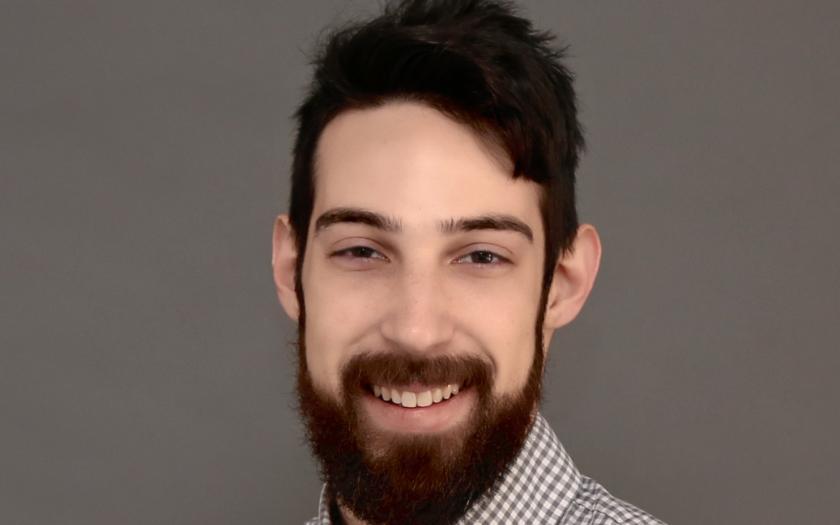October Student Spotlight - Cameron Baptista

Cameron Baptista
Mathiowitz Lab
Master’s in BME (2nd year)
1. When did you decide you wanted to pursue a Master’s in biomedical engineering?
Initially I wanted to do a PhD and applied only to PhD programs. Brown was one of only a few schools that counter offered and basically said they couldn’t accept me for a PhD but could for a masters. I’m hoping this will be a stepping stone into a PhD. I decided I wanted to go to grad school after junior year of undergrad.
2. What is the focus of your project?
The Mathiowitz Lab works on polymers and I am specifically focusing on the effects of pressure and temperature on polymer morphology. Putting high pressure on polymers as they cool forces the structure to orient so a polymer that’s normally amorphous starts to show directional properties. There’s a big interest in that because it’s kind of analogous to liquid crystals. Liquid crystals are in a lot of high performance products but they are expensive and most of them are not biocompatible polymers, so we’re interested to see if we can induce similar properties into biocompatible polymers.
3. What has been the proudest accomplishment of your time in graduate school, or a particular “high point”?
I’ve done a lot of trouble shooting for my project so far. Prof. Mathiowitz wanted me to learned a specific type of DSC known as modulated DSC and she didn’t understand how to do it on our machine, so she asked me to spend time figuring that out. I spent a lot of time figuring that out and trouble shooting, which was rewarding in the end.
4. What has been the biggest challenge or frustration during grad school?
There’s a lot of little challenges. Sometimes equipment will break and then you have to spend time fixing it or wait for it to be fixed and that slows down your progress. Also, sometimes you expect to see a certain trend but then it doesn’t appear and you have to rethink everything you’ve done. Developing methods to run an experiment can take a long time to, so you might have to spend a week just developing a method before you can even start running an experiment.
5. Have you ever done an experiment that didn’t work?
Recently I was helping other members of the lab do a rat experiment for a different project where we wanted to see how particles would penetrate part of the intestine. We did what’s called an inverted sac experiment, which is a very time sensitive procedure. As soon as we thought we had finished the procedure we realized the intestine was leaking and the particles were already in areas we didn’t want them. It was a good learning experience though and now the next time we do it, we will hopefully understand better how to complete the procedure.
6. How did you choose your mentor?
I knew I wanted to do something along the lines of material science so when I was looking through faculty at Brown I saw that Prof. Mathiowitz was a physical chemist and work more along the lines of materials science than most of the other faculty. She does a lot of fundamental polymer science, so I was drawn to her for that as well as the fact that she’s a leader in her field.
7. How was your project(s) chosen for grad school research? Did you get to pick or was a project assigned to you?
I was interested in all of the projects she was working on so I was open to anything and asked her what she would most want me to work on, but she told me to pick whichever I wanted to do most. I ended up taking on a project from a post-doc who was leaving because there was no one else to take it on and she seemed to want that project to be continued.
8. What three qualities do you think are most important for someone entering graduate school?
Good time management is important because in a master’s program the time goes by very fast. You have to be productive on your own, don’t wait for directions.
9. Where do you hope for your career to be in 5-10 years?
I hopefully will have gotten into a PhD program and will have finished it. Then I’d like to move into an industry job with a pharmaceutical company.